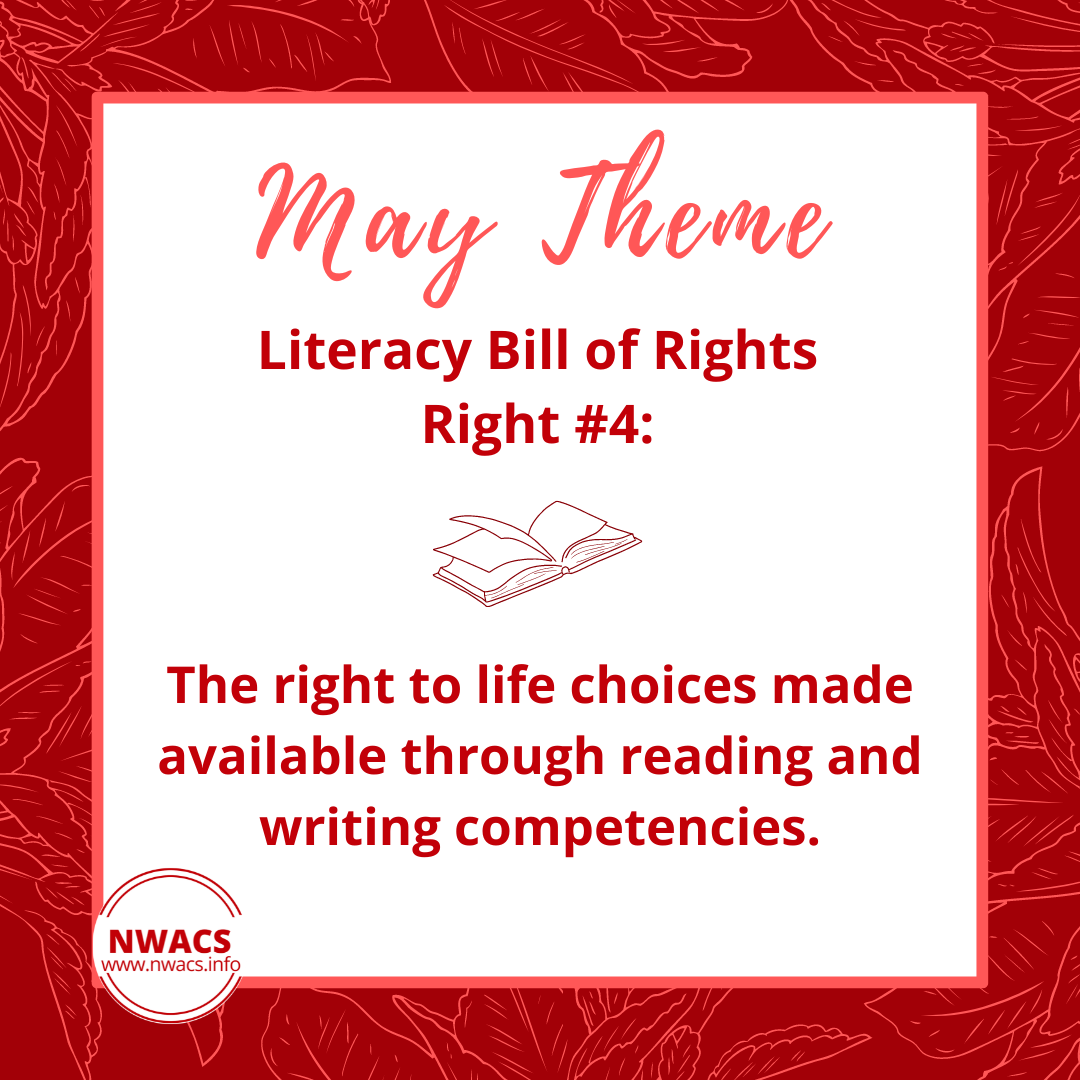AAC and Literacy
Related Posts
Literacy Bill of Rights #1: The Right to an Opportunity to Learn to Read and Write ~ NWACS board members Casey and Alicia kick-off the 2024 theme with an introduction to the importance of literacy and the Literacy Bill of Rights, Right #1. [5-minute read]
What is Comprehensive Literacy and Ideas for Literacy at Home ~ February 2024 NWACS AAC Learning Network recording
AAC Learning Networks February 2024 Curated List of Literacy Ideas ~ A list of all the great literacy ideas shared during the February AAC Learning Network meeting. [6-page PDF]
Literacy Planning Resources ~ download the slides from the April 2024 NWACS AAC Learning Network
Mental Health Barriers and Solutions for AAC Users ~ Ashley Mohesky, MS, LPC Associate discusses mental health and AAC as well as how her journey with literacy has impacted her life. [6 minute reading time]
Book Time ~ NWACS board member Amy shares about passing her joy of books, reading, and storytelling on to her three autistic children with communication differences. [reading time: 5 minutes]
Using Shared Reading to Support Literacy Right #3 ~ An exploration of the shared reading strategy to support the right to interact with others while reading, writing, or listening to a text. [reading time: 8 minutes]
AAC and Access to Literacy in the Classroom ~ April 2024 NWACS AAC Learning Network recording
Teach self-advocacy through protesting & rejecting
Literacy Skills Support Self-Advocacy
Assistive Technology Tools to Support Comprehensive Literacy ~ May 2024 NWACS AAC Learning Network recording
Ask an AAC User: Interview with an 8-year-old and his Parent ~ An interview with an 8-year-old AAC user and his parent. [reading time: 3 minutes]
Let’s Talk AAC: Using Shared Writing to Support Literacy Development ~ An exploration of shared writing to support literacy development. [reading time: 3 minutes]
The Loneliness of Not Being Able to Communicate ~ Esther Klang shares about the loneliness she experiences when she woke up from surgery with a communication disability. With no access to or education about AAC. [reading time: 4 minutes]
Emergent Literacy, “Early” AAC, & Gestalt Language Processing ~ June 2024 NWACS AAC Learning Network recording
AAC, Literacy, and Me ~ Pixie shares their experiences and thoughts on learning literacy skills as an AAC user. [reading time: 3 minutes]
AAC and Literacy in a High School: How We Did It ~ Margaret shares how she has been working to implement literacy instruction at a high school. [reading time: 4 minutes]
Independence & Autonomy Across the Lifespan: Why Literacy Matters
Literacy Instruction for All ~ The first in a three-part series on the science of literacy. This is an introduction to literacy instruction for all. [reading time: 3 minutes]
The Science of Reading is for Everyone ~ The second in a three-part series on the 'science of literacy', this article explores the science of reading and the five essential elements of reading instruction. [reading time: 8 minutes]
The Science of Writing is for Everyone ~ The third in a three-part series on the 'science of literacy', this article explores the science of writing and the five recommendations for effective writing instruction. [reading time: 7 minutes]





















